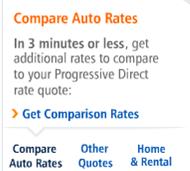When To Drop “Full Coverage” Insurance
Four Questions To Ask Before Dropping Comprehensive And Collision On Your Vehicle
Knowing when to drop full coverage auto insurance can be tricky. As your car ages, keeping comprehensive and collision coverage may not make sense. At some point, you could be paying more for insurance than what your car’s worth. Since you’re aiming to save money, it’s worth exploring when to drop full coverage. You may be wasting money by keeping it.
“Full Coverage” Is Physical Damage Coverage
Before knowing whether to stop carrying it, it’s good to understand what “full coverage” is. Full-coverage insurance is another way of saying comprehensive and collision – with liability coverage. Comprehensive coverage (comp) covers the physical damage of your car when not involved in a collision. Shattered windshields, vandalism, even hitting an animal could all be damage covered by comprehensive insurance.
Collision coverage is different. If you are involved in an at-fault accident, your vehicle could be damaged. Collision covers the physical damage to your own car if you hit another car, a telephone pole, or another object and the accident is your fault. Both collision and comprehensive make up “full coverage”. Check out our article on Full Coverage Auto Insurance for more information.
There are several considerations to make before dropping full coverage. Make sure you review these questions before contacting your agent.
Question #1: What Do You Owe On The Car?
If you owe money on your car, then your finance company will probably require you to keep comp and collision. If you lease your car it’s usually the same deal. Before you drop full coverage when you owe or lease, talk to your bank first. Otherwise, keep both coverages until you fulfill your financial obligation.
Question #2: What’s Your Replacement Cost?
Comprehensive and collision covers the physical damage to your vehicle. If your vehicle is not worth much, it may be time to consider dropping full coverage. For instance, if it costs $400 a year for comp and collision and your vehicle is only worth $1600, think about dropping it. In four years time ($400 x 4 = $1600) you could have paid for the vehicle with the comp and collision premium – assuming you did not make a claim. Still, consider your driving history and cash in the bank before you call your agent.
Question #3: Should You Drop Collision or Raise Deductibles?
Collision is more expensive than comprehensive. On my policy for this period, I’m paying $23.70 for comp, but I’m paying $53.60 for collision. Granted, I carry a $250 deductible on comp and a $1000 deductible on collision, but that’s still a significant difference. If you’re a safe driver, you may consider dropping collision on an older vehicle.
Instead of dropping full coverage, you could also raise your deductibles. By carrying a higher deductible, you carry more of the risk associated with driving. That’s why it’s cheaper to have a $1000 deductible versus $250. If you want to save money, but don’t feel safe dropping comp and collision completely, just raise your deductibles.
Question #4: What About Full-Coverage Peace of Mind?
You may be looking to save money. But if you get nervous driving down the highway without comp and collision, it’s probably not a good idea to cancel the coverage. An anxious driver is a bad driver. Even if you’re not normally edgy, dropping certain coverages can be unnerving. Before dropping full coverage, just make sure you’re comfortable with the new arrangements. You will save money – but you may lose sleep. Weigh your options and make an informed decision.
One final thought: you could also just cancel collision. Since comprehensive is fairly inexpensive, you might want to leave it on your policy – even if it’s an older vehicle. Comprehensive covers your car it’s stolen, a tree falls on it, and more. You may not have coverage for physical damage in an at-fault accident, but it would cover other unforeseen incidents.






